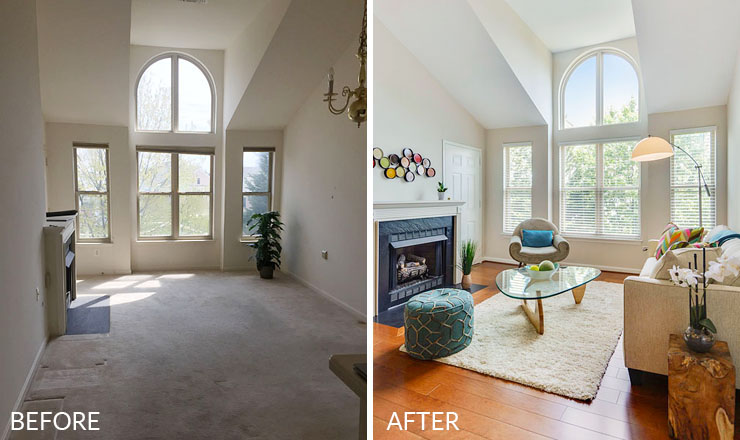f.a.q.
You have questions. wE have answers.
A good real estate agent becomes your business partner, advisor, best friend, and therapist through the buying or selling process.
Home buyers typically do not pay any fees to their Real Estate Agent when purchasing a home. For most home sales, it is the seller that pays commissions to both their Listing Agent (for marketing and advertising their home) as well as the home buyer’s Agent (for finding a qualified buyer that brings in an offer on their home.
In order to make an offer on a home, a buyer is typically required (by the seller) to provide proof that the buyer has adequate funds or financing to afford the purchase offer amount. So, once you have made a decision to purchase a home, the wisest first step is to determine how you plan to finance the transaction.
For cash buyers, you simply need to settle on how much you are willing to spend, then go to your financial institution to get a “Proof of Funds” letter, which establishes that you have the funds necessary to purchase the home.
For buyers that plan to finance their purchase, you should meet with a lender, that will assist you in determining that you are qualified to get a loan through their institution that would enable you to purchase the home you are making an offer on. Once the lender has established your qualification, they will a Pre-Qualification Letter.
Once this is done, you would provide either of these letters to your Agent. This helps the Agent as they search for homes that fit your needs. The Agent will also need this, when they submit your offer for a home you wish to purchase.
Please note that in a “hot market”, like we are currently experiencing, homes that are a “strong value”, receive offers quickly. If you wait to get a Proof of Funds Letter or Pre-Qualification Letter after you have found that perfect home, the time delay could keep you from submitting your offer soon enough to be considered.
If you are paying cash for a home, your credit score is not a factor in your purchase offer. A “Proof of Funds Letter” is sufficient.
If you will be financing your loan, most loan programs require a FICO score of 620 or better. Requirements vary by lender. The higher your credit score, the less a lender will require for your down payment and the lower your interest rate will be.
Down payment requirements are set by your lender and also vary by the type of loan you are getting. VA and FHA loans have low to no down payment requirements. Conventional loans can vary, but typically, lenders prefer 20% or greater down payments.
One other factor to keep in mind is that in a hot market, like what we are currently experiencing, sellers will often take your down payment amount into account as they compare your offer to other offers. Lower down payments put pressure on appraisals. If an appraisal comes in below your asking price, that creates a situation where you the buyer would need to put more money down to make up this shortfall in appraised value. The other option is that the seller would have to lower their sales price, taking a financial hit. Sales can easily “fall through” over this situation.
In the end, the choice is yours, but the larger your down payment, the stronger your offer will be perceived.
This question is best answered by consulting your financial advisor or lender. Personal circumstance vary so greatly, so there is no easy answer.
From an Agent’s perspective, the only time this decision matters is when a buyer wants to make an offer “contingent” on the sale of their home. Contingent offers are a small percent of offers accepted by seller’s. From a seller’s perspective, a contingent offer locks up their effort to sell their home as their listing loses interest to other prospective buyers. Non-contingent offers typically give a buyer the best chance of having their offer accepted.
Yes, yes and yes!
In the case that you are financing your home through a lender, they will require a home inspection be performed. But even if you are paying cash for a home, a home inspection is your most important line of defense to make sure there no defects you were not aware of.
If you decide not to do a home inspection, you are accepting the home “as is”. The cost of a home inspection from a qualified Home Inspection Company is an investment well worth making.
Latest News
Sharing what’s been happening with Buchanan Az Homes!






